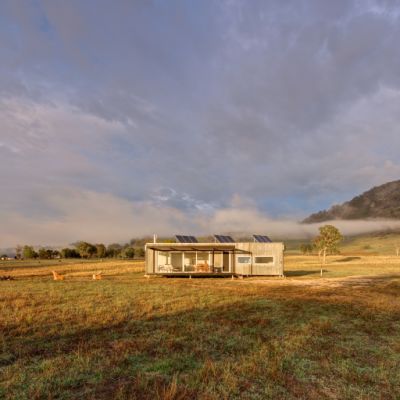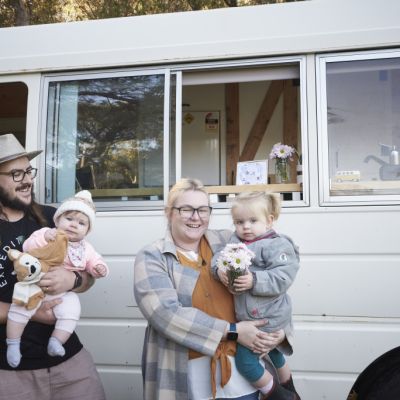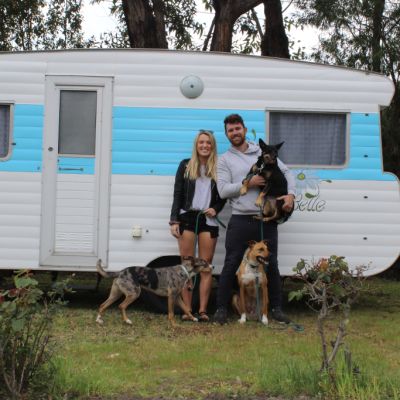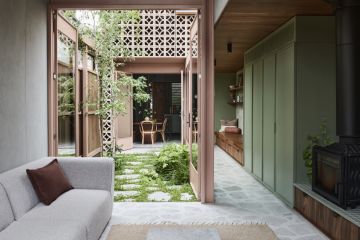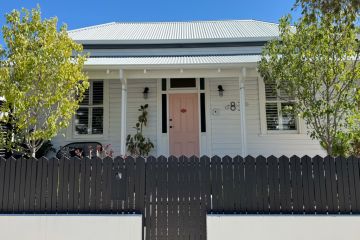An old school bus became this couple's dream home
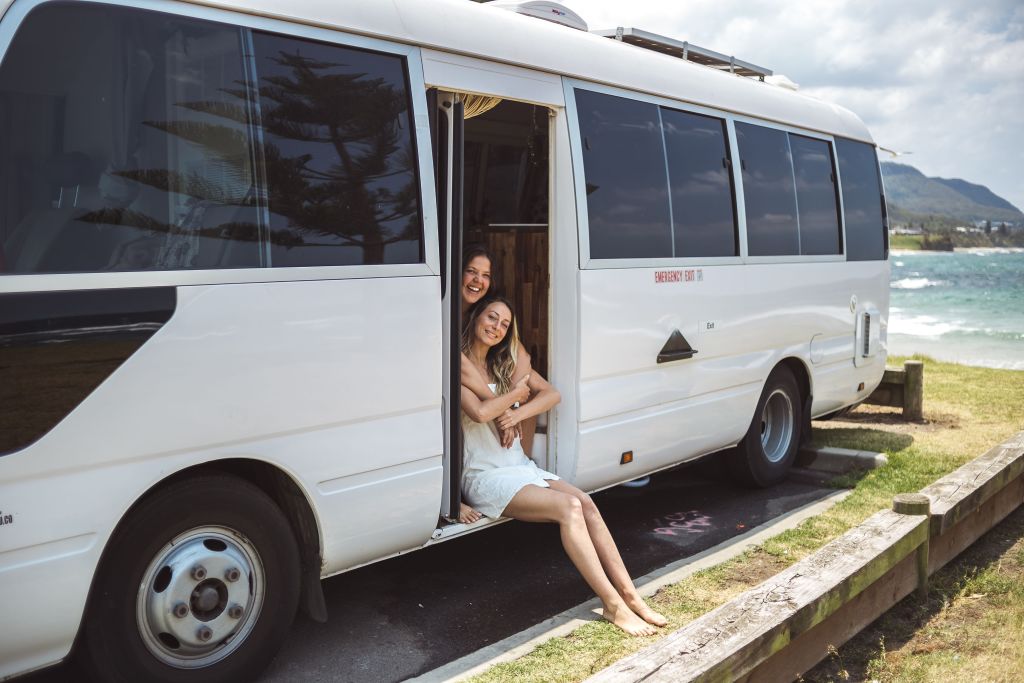
Natalie Saper and Amanda Sanches de Souza own a home that’s smaller than a studio apartment, but the couple from Sydney say it’s more than they ever dreamed of.
Last year they bought a bus on eBay – “for a steal,” Saper says, at $11,000 – and spent another $18,000 and nine months of weekends transforming it into a certified motorhome.
The couple have been living in the 1993 Toyota Coaster, nicknamed Brisa, throughout 2020.
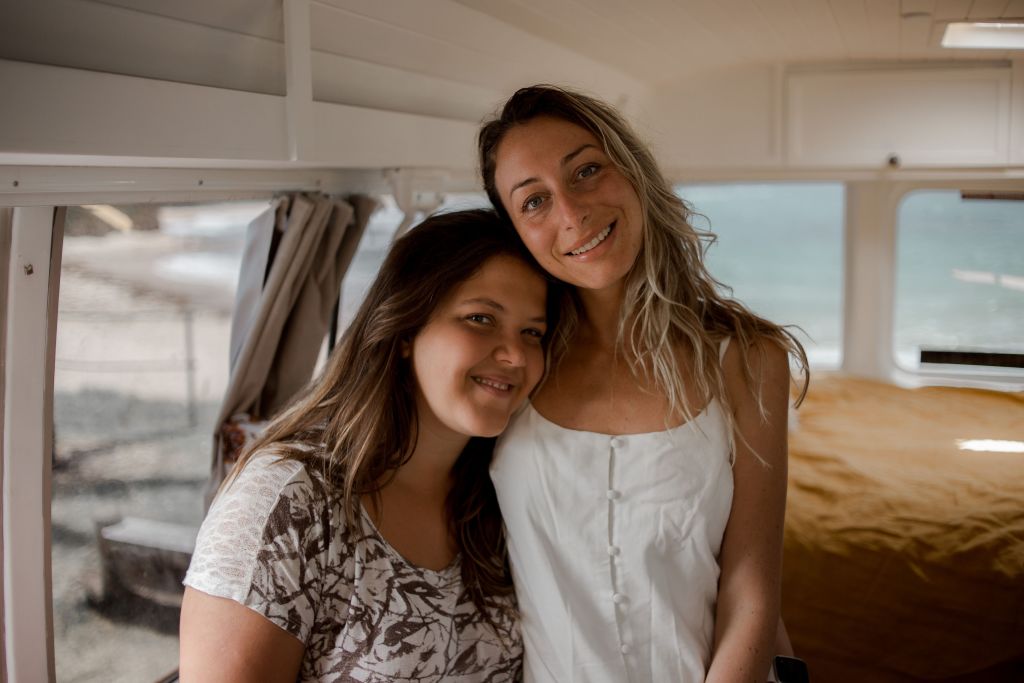
“We started from scratch,” Saper says of the conversion, “as Brisa was previously a local school bus and still had her seats in when we bought her. We had no previous reno skills at all, so we had to call on my father, who’s an all-rounder handy guy, and had all the power tools.”
Even with her dad’s experience, there was still plenty of new things for all three of them to learn, like how to put holes in the roof for ventilation fans, and how to install water tanks under the bus’s floor.
Following the lead of others in the bus-life community helped them figure it out.
“We binge-watched a lot of YouTube videos, and followed a lot of Instagram accounts as well,” Saper says.
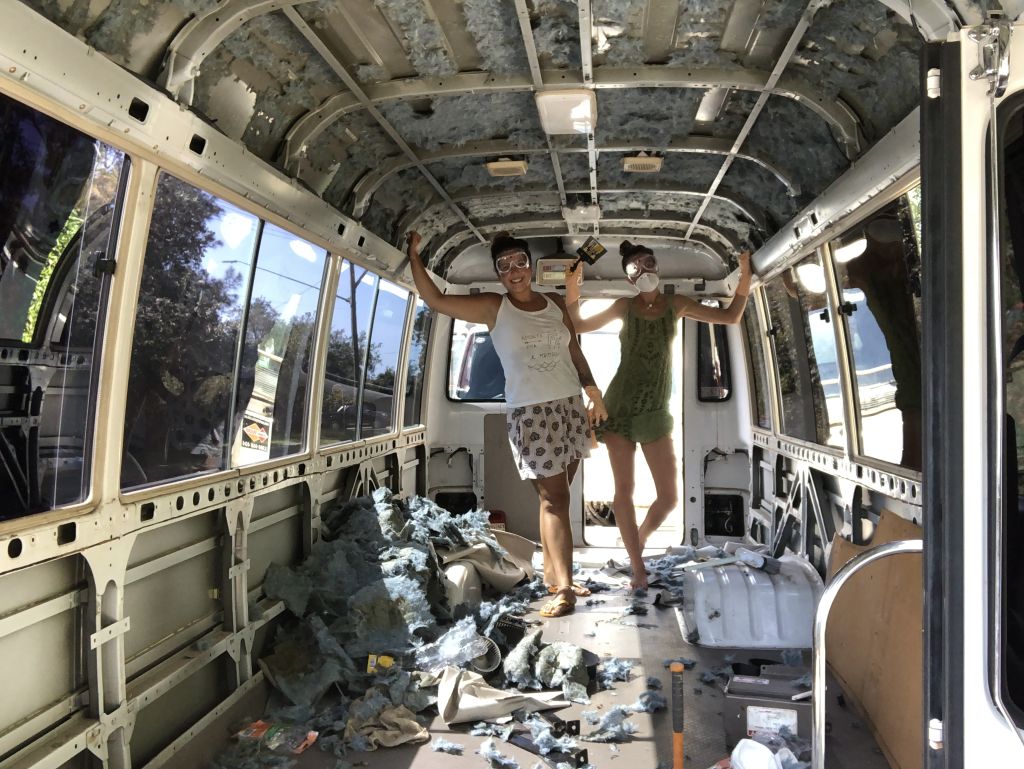
While it took a few attempts to come up with a floor plan they were happy with, one thing the couple agreed on from the start was installing a fully functioning kitchen complete with oven, cooktop and 175-litre upright fridge.
Saper loves to cook, and “wanted to be able to make everything I usually make at home in the bus”.
The couple already had some van-life travelling under their belt before buying the bus, having done cross-country trips in a Toyota Spacia, and their experiences inspired some extra little luxuries to make bus-life more comfortable.
There’s a cooling Sirocco fan over their bed, a water filter to remove any “gross” taste from the tank water, plus charging docks throughout the bus (powered by 600 watts of solar panels on the roof).
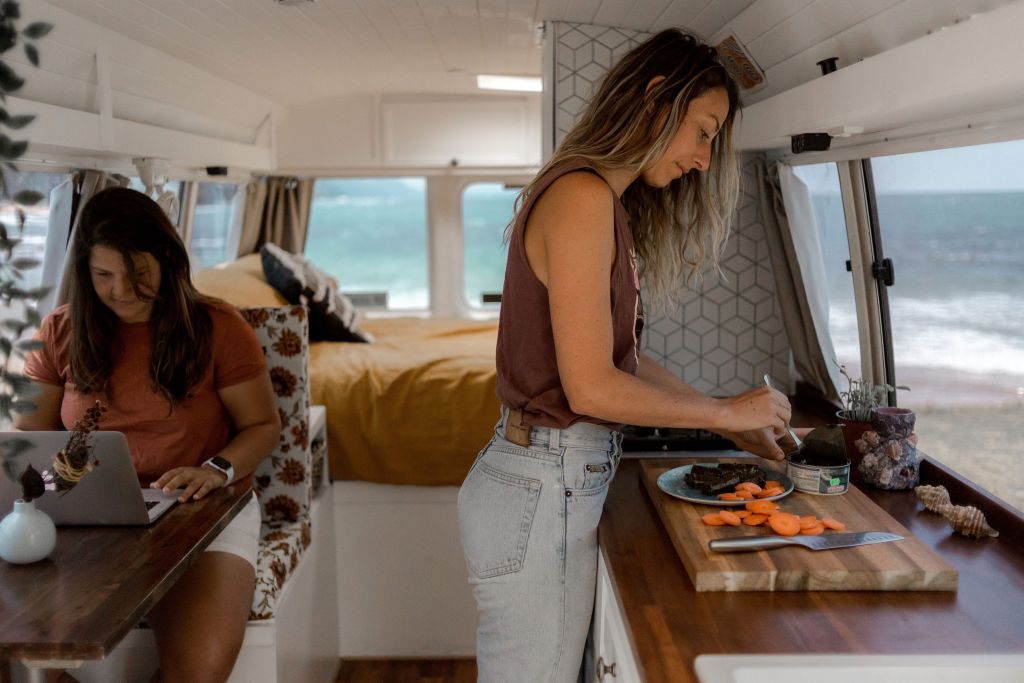
The bus has a small bathroom with an electric flush Thetford cassette toilet, a hot-water shower, and overhead vent to let in fresh air and light.
And the interior has been kept mostly white to increase the sense of spaciousness through the bus – sunlight reflects off the white walls, kitchen tiles, and tongue and groove ceiling.
The couple spent their first months living in the bus based in Bondi, parking overnight at beach carparks, but once the Queensland border reopened in July this year they headed up north and have been on the road ever since. Both have digital jobs, and work from their laptops at the bus’s dining table.
While they’ve adjusted well to life on the road, Sanches de Souza admits it was hard at first to adapt to a slower pace of life.
“For me, I had to learn how to relax,” she says, “and not feel guilty about doing it. It was hard to not be constantly busy.”
There was plenty to fill their spare time, though – they stopped at towns and cities along the coast all the way up to the Daintree, using a camping app to find places to stay overnight.
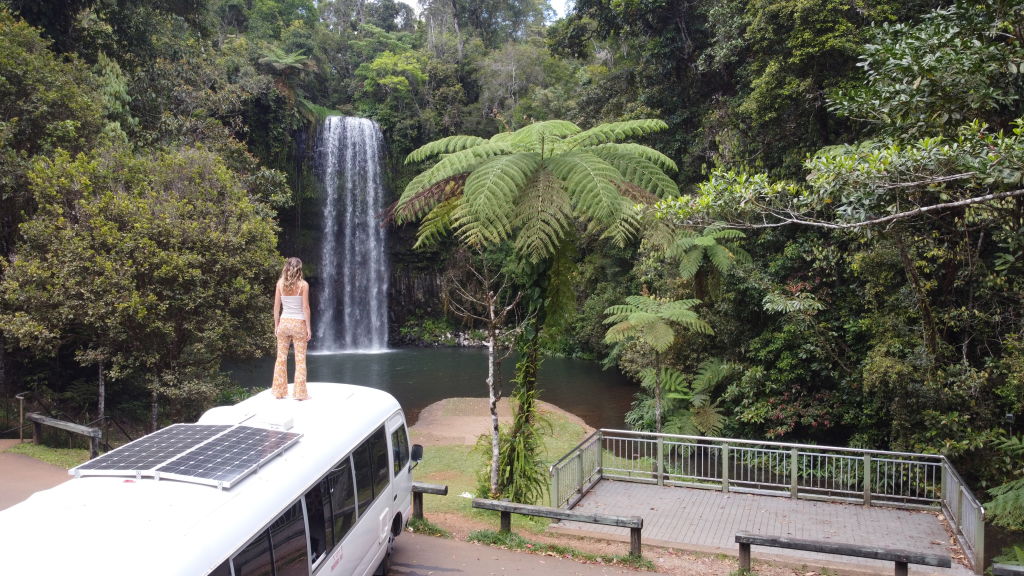
“If we like a spot, we stay for a few days,” Sanches de Souza says. “When we find somewhere to stop it’s usually by the ocean, with beautiful views to cook lunch and dinner to.”
And while many couples might balk at the thought of spending day and night in a small space with their significant other, Saper says it’s an improvement on the tiny converted garden shed – with single bed – she lived in when she met Sanches de Souza four and a half years ago.
And they are careful to treat each other with care.
“We have a really healthy relationship and communicate a lot,” Saper says. “One thing that helps us not feel on top of each other is socialising with others that we meet on the road. It breaks up the time that we are always together, and it brings new energy into the equation.”
“I think that having a routine helps keep a bit of normality in our lives,” Sanches de Souza says.
Ultimately, they say the bus is their symbol of freedom. And they have nothing but encouragement for anyone else wondering whether to give the bus lifestyle a try.
“Start planning, do your research and dive into the deep end,” Saper recommends.
Sanches de Souza adds, “Stop thinking and start doing!”
We recommend
States
Capital Cities
Capital Cities - Rentals
Popular Areas
Allhomes
More
